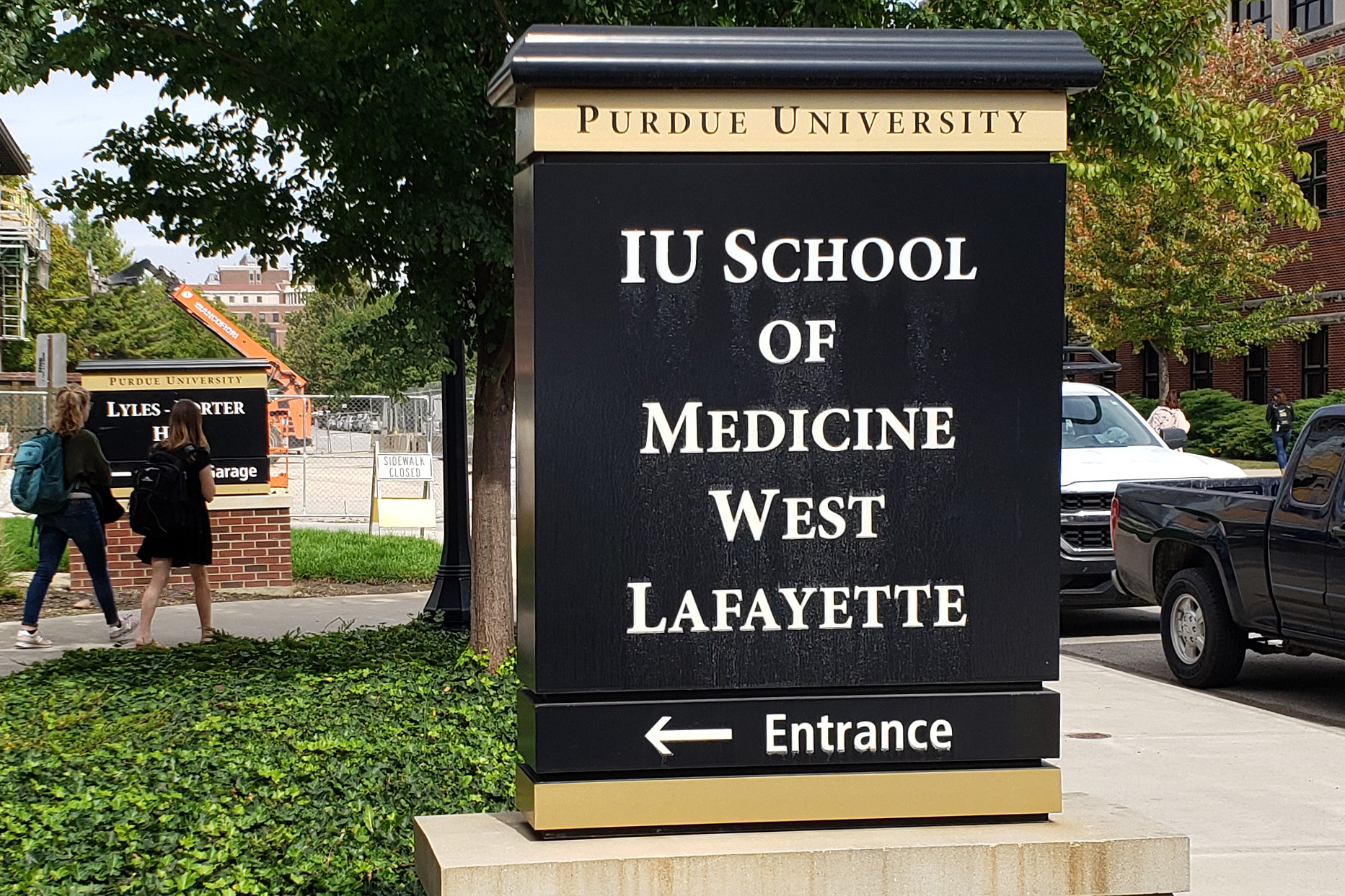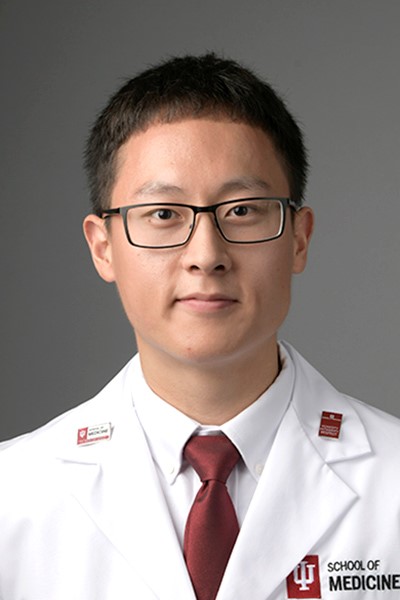Purdue Engineering—Indiana University School of Medicine Partnership expands with new integrated educational programs

An expanded set of integrated educational offerings includes three new programs for medical students seeking to augment their medical training with research experiences in biomedical engineering. In addition, plans for a novel Indiana Clinical and Translational Sciences Institute (CTSI) Biomedical Devices Clinical Research Laboratory as well as the recent launch of a Purdue Engineering Initiative (PEI) specifically in Engineering—Medicine are two of the latest initiatives in a collaborative enterprise that spans the largest medical school in the US and a top ten engineering school in the US.
Biomedical engineering research for medical students
IU School of Medicine students interested in gaining experience in conducting translational research and learning more about how medical products are both developed and approved for clinical use can now choose among a suite of programs offered at the Weldon School of Biomedical Engineering. Upping the convenience factor for these students is the IU School of Medicine—West Lafayette Campus.

IU School of Medicine – West Lafayette, one of the School’s nine statewide locations, is located on the Purdue campus, just steps from the Weldon School of Biomedical Engineering. Approximately 50 medical students study at the Purdue campus and enjoy the perks of both worlds. They have access to all of the amenities of the iconic Big Ten campus, including its world-renown faculty, laboratories, and research cores.
Medical students can choose to conduct research at the Weldon School of Biomedical Engineering for a scholarly concentration, a summer research project, or a master’s degree in biomedical engineering. The Scholarly Concentration in Biomedical Engineering and Applied Medical Technology is a new program available to IU School of Medicine students on the West Lafayette campus in partnership with the Weldon School of Biomedical Engineering. These medical students can engage with faculty members in biomedical engineering to explore a topic area that they are interested in—such as implantable medical devices, engineered tissues and biomaterials, point-of-care diagnostics, advanced medical imaging, and systems engineering of healthcare delivery.
The concentration requires the students to complete several types of coursework and a scholarly research project integrated throughout the phases of medical school. The first cohort is slated to enter the Scholarly Concentration program in the fall of 2020. Within this program, the students gain an understanding of the process of translating technology from bench to clinic, have a unique mentorship experience with Purdue faculty, and earn a Scholarly Concentration designation that will be valuable for residency applications and professional development.
Medical students seeking a deeper dive into a research project can opt for the summer research program, established by the Engineering-Medicine Partnership for IU School of Medicine students seeking to enrich their studies and training by participating in engineering-focused research opportunities the summer between their first and second year of medical school.
Six IU School of Medicine students conducted research with faculty members in the Weldon School of Biomedical Engineering in the summer of 2019. Kevin Lin, a second-year medical student, studied with Tamara Kinzer-Ursem, Marta E. Gross Associate Professor of Biomedical Engineering.
“I wanted to pursue an engaging opportunity that explored some area of healthcare, whether it was the clinical or biomedical science side,” said Lin. In Kinzer-Ursem’s lab, he studied the underlying pathways of neurological disorders. “Our project aimed to map the temporal dynamics of neuronal proteins in vivo using mouse models and a method known as non-canonical amino acid tagging.” Lin hopes to use his experience to shed some insight into different neurological disorders and apply similar reasoning to diseases that manifest in other organ systems.
Craig Goergen, Leslie A. Geddes Associate Professor of Biomedical Engineering and Director of Clinical Programs at the Weldon School of Biomedical Engineering, expects that the experience might whet the students’ appetite for a career that incorporates clinical research. “The hope is that the students who do this really enjoy it,” he said, noting that if students catch the research bug they can transition into the MD/MS or even the MD/PhD combined degree program in biomedical engineering.
The MD/MS in biomedical engineering offered through the Weldon School has two options. One is the research-based, thesis master’s-degree for IU School of Medicine students who want to gain a deeper understanding of engineering research and potentially bring this research into their clinical careers. The other is the Professional MS degree for medical students who want to better understand the engineering technologies in their clinical practice. Students earning either of these degrees can then leverage their clinical training and medical school coursework to more fully participate in the development of engineering solutions for challenges in healthcare delivery and facilitate clinical testing of new therapies.
“If a medical student has entrepreneurial interests or if they are thinking about tech transfer—the process technology goes through from benchtop to bedside and gets approved to be used in a clinic—all that could be supported through completion of a MS degree in biomedical engineering,” said Goergen. “Having a master’s in science in biomedical engineering from Purdue University will give them a leg up in translational research and competing for top residency and fellowship programs in the future.”
A global research enterprise in Engineering—Medicine
Multiple initiatives are underway to bolster research collaborations between Purdue Engineering, IU School of Medicine, and beyond.
Over 50 collaborative research projects are ongoing between Purdue and IU School of Medicine. With an eye toward growing those collaborations, formalized research collaboration meetings are strategically designed to facilitate targeted connections between faculty at each campus, to share expertise, and to spur joint projects.
“We just had a group of (IU School of Medicine) otolaryngologists visit Purdue to discuss some of their unmet clinical needs,” said Goergen. “They visited engineering laboratories, and we are launching research collaborations in response to funding opportunities.” Goergen noted that these new projects will build on the numerous strong collaborations such as with cardiothoracic surgery, radiology, oncology, and neurosurgery at IU School of Medicine.
A significant facilitator of research collaborations across the State is the Indiana CTSI. George R. Wodicka, Dane A. Miller Head and Professor at the Weldon School of Biomedical Engineering, recently became the Indiana CTSI co-director representing the Purdue campus. One of his first initiatives is the construction of a Biomedical Devices Clinical Research Laboratory where clinicians and engineers from across the State can evaluate early-state noninvasive medical devices, including wearable and point-of-care technologies. The Laboratory will be located in the new addition of the Martin C. Jischke Hall of Biomedical Engineering on the Purdue campus.
In January, 2020, Wodicka will co-host the Indiana CTSI Annual Retreat, “Engineering Giant Leaps in Medicine,” featuring a keynote address by Bruce J. Tromberg, Director of the National Institute of Biomedical Imaging and Bioengineering (NIBIB) at the National Institutes of Health. Interactive breakout sessions will include engineering topics in wearable technologies, point of care diagnostics, connectivity, and personalized medicine and clinical topics in pediatrics, cardiovascular and metabolic diseases, oncology, and substance use disorder.
Finally, the Purdue Engineering Initiative (PEI) in Engineering—Medicine, launched in 2019, is an incubator to grow research, learning, and engagement in the engineering-medicine arena. Deliverables that fall under the umbrella of the Engineering-Medicine PEI include the educational programs and Biomedical Devices Clinical Research Laboratory mentioned above, recruitment of new faculty, and the generation of thought-leadership nationally and globally.
With the strategic expansion of jointly offered educational programs and research collaborations among multiple partner institutions, the Engineering—Medicine Partnership is positioned to be one of the most productive research enterprises in the world, a premiere source of well-educated biomedical engineers and physicians, and an innovator in the translation of technologies into medical care.
